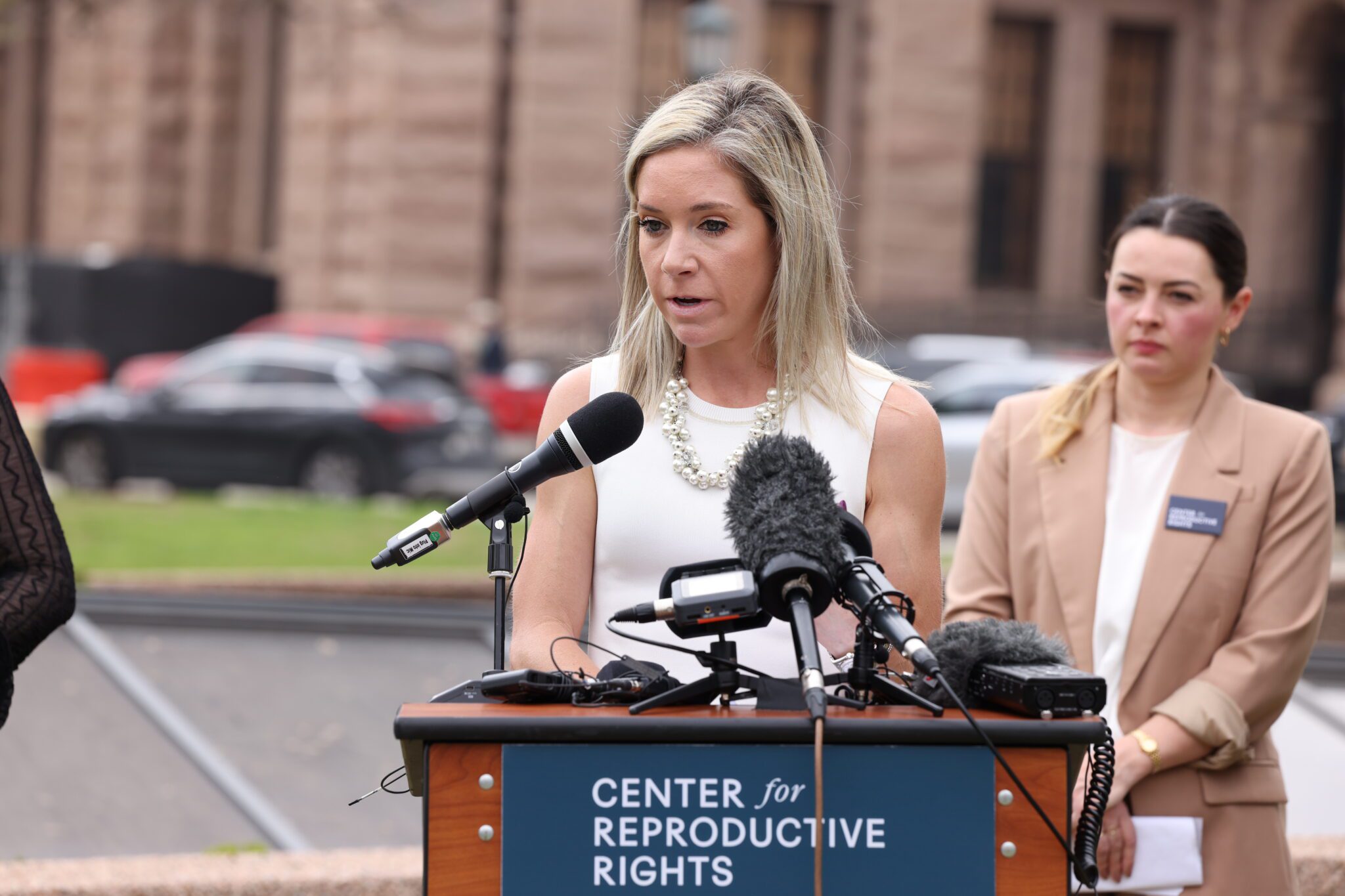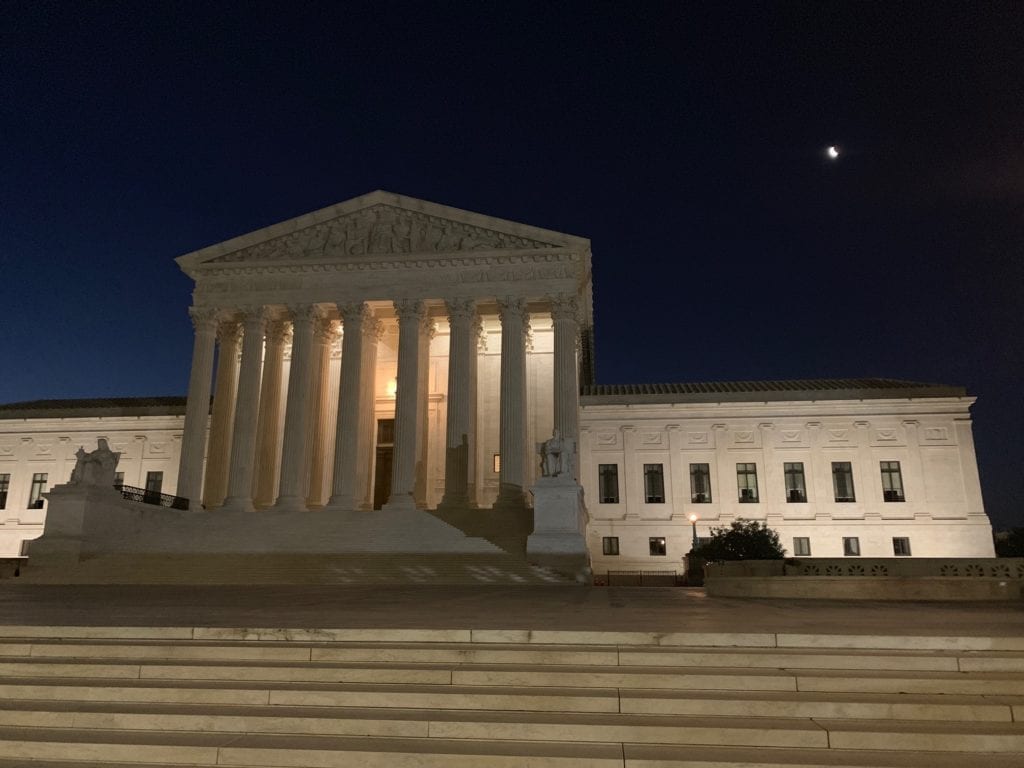Plaintiffs’ Stories: Zurawski v. State of Texas
Stories of seven Texas women—each denied abortion care after facing severe and dangerous pregnancy complications—who joined this case as plaintiffs on November 14, 2023.
Since the Center filed its original case against Texas in March 2023 on behalf of five Texas women denied abortion care and two Texas obstetrician-gynecologists, many Texans have come forward to tell their stories about being denied abortion care despite facing severe and sometimes life-threatening pregnancy complications. The case, Zurawski v. State of Texas, now has 22 plaintiffs.
Here are the stories of the seven women who joined the case as plaintiffs on November 14, 2023:
Kristen Anaya
Kristen Anaya, of the Dallas-Fort Worth area, was 16 ½ weeks pregnant when her water broke. At the hospital, she lost more amniotic fluid, spiked a fever, and began having rigors, or uncontrollable shaking—symptoms that she would later learn were early signs of sepsis. Kristen’s doctor told her that her pregnancy could not continue without amniotic fluid, but since her daughter still had a heartbeat, the hospital would not provide abortion care unless her life was in danger. Over the next 22 hours, Kristen’s fever climbed higher, and she shook and vomited constantly.
After presenting Kristen’s case to hospital administration several times, her doctor was finally able to obtain permission for her to receive an abortion. Immediately after the procedure, Kristen’s fever subsided and the vomiting stopped. She recovered from the septic infection after five days in the hospital.
Kristen and her husband still want to have children but fear for her safety if she gets pregnant again. They’ve started IVF treatments and believe they’ve found a surrogate who can carry for them—but the surrogate also lives in Texas. Kristen decided to join this case after realizing that so many other Texans shared her experience.
Read more about the case.
Kaitlyn Kash
Kaitlyn Kash, of Austin, pregnant with her second child, discovered after her 13-week ultrasound that her baby had severe skeletal dysplasia—a condition affecting bone and cartilage growth—and the baby was unlikely to survive until birth or would suffocate soon after being born. When Kaitlyn asked what option would ensure the least amount of suffering for her baby, the MFM recommended she seek “a second opinion, but outside Texas.” Kaitlyn was able to obtain abortion care after traveling to a clinic in Kansas, where protestors harassed her and other patients.
After becoming pregnant a few months later, Kaitlyn miscarried at seven weeks. Her doctor prescribed medication to help her pass the pregnancy, but because the drug is also used for medication abortion, she struggled to find a pharmacy to fill the prescription.
After another miscarriage without medical intervention, Kaitlyn became pregnant and gave birth to a daughter in 2023. After the birth, she needed a dilation and curettage (D&C) procedure to remove remaining placental tissue, but the hospital had difficulty locating the equipment and staff for the procedure. While waiting, Kaitlyn’s condition deteriorated, and after vomiting, losing blood, and losing consciousness, she was transferred to the ICU, where she was later told she was lucky she hadn’t lost her uterus. Kaitlyn still struggles to understand why the hospital had so much trouble providing her with routine postpartum care.
D. Aylen
D. Aylen, of San Antonio, discovered at about 17 weeks into her pregnancy that her baby had a possible neural tube defect, such as anencephaly or spina bifida. At her 19-week anatomy scan, an MFM specialist confirmed the diagnosis of anencephaly. Hoping to prevent more suffering for herself and her baby, D. called out-of-state abortion clinics—most of which had four- to eight-week wait times—and eventually was able to obtain abortion care in San Diego.
Losing her child and being forced to travel to California to obtain health care was one of the worst moments of D.’s life. She is glad to be pregnant again but continues to be plagued by fear and receives sonograms every three weeks. D. decided to join this case to honor her baby’s memory and make sure that no other family has to go through what she endured.
Kimberly Manzano
Kimberly Manzano, of the Dallas-Fort Worth area, discovered she was pregnant again after a miscarriage a few months earlier. But an ultrasound at 10 weeks revealed that some of the baby’s organs were growing outside the body. The MFM specialist was concerned that Kimberly’s health was at risk and suggested she obtain an abortion out of state. After an MRI scan revealed that the baby’s spine, genitalia, kidney, bladder and abdominal wall had not developed properly, the MFM specialist told Kimberly and her husband, “If it was my baby, I would want him to be with God now.”
Devout Christians, Kimberly and her husband had always considered themselves to be anti-abortion, but it became clear to them that abortion was their only option. Their baby had little or no chance of survival, and if Kimberly continued the pregnancy, she’d be at risk of infection since the baby had no bladder and urine was circulating in her uterus. When Kimberly was 18 weeks pregnant, she was traveled out of state to obtain an abortion in New Mexico.
Kimberly and her husband consider losing their baby to be the most challenging thing they have been through. Disgusted that people are made to feel like criminals for making such sacrifices, Kimberly believes it is not her place to judge someone else’s decision about their pregnancy. She decided to join this case in hopes that her baby’s story can make a change and so that no woman has to flee Texas to obtain necessary medical treatment.
More women join lawsuit challenging Texas’ abortion laws
Read more about the plaintiffs’ stories in this piece from the Texas Tribune.
Dr. Danielle Mathisen
Dr. Danielle Mathisen, formerly of the Fort Worth area, is currently an obstetrician-gynecologist (OB-GYN) resident physician in Hawai’i. While still living in Texas, Dr. Mathisen learned she was pregnant. But at her 18-week anatomy scan, her doctor diagnosed her baby with several lethal fetal conditions—including a hole in the spine, only one kidney, and no formed brain structures—and said the baby was unlikely to survive or would slowly suffocate soon after birth. Dr. Mathisen’s doctor—who is also her aunt—told her she couldn’t help her and advised her to go on a “vacation” to Colorado. Dr. Mathisen was shocked that her own family member was unable to help her or even openly discuss abortion due to Texas’s bans.
Dr. Mathisen and her husband decided abortion was the right decision to prevent further suffering for their baby and themselves. With clinics in Colorado overflowing with Texans, Dr. Mathisen was able to obtain an abortion after traveling to New Mexico.
Dr. Mathisen is pregnant again and resides in Hawai’i, where abortion is legal, but she does not feel safe when she visits her family in Texas. She decided to join this case to be a voice for people who can’t share their abortion stories and to prevent other Texans from going through the same trauma.
Cristina Nuñez
Cristina Nuñez, of El Paso, has several medical conditions—including diabetes, cardiovascular issues, and end-stage renal disease—and was advised by doctors to never become pregnant. When she discovered she was six weeks pregnant, Cristina consulted her OB-GYN, who reiterated that continuing the pregnancy would put her life, and her baby’s life, at risk. Cristina asked for an abortion, and although her doctor promised to present her case to the hospital administration, she never heard back. She reached out to a New Mexico clinic and was told that because of her medical condition, she was not eligible for medication abortion, and she was too early in pregnancy to get a surgical abortion.
Over the next few weeks, Cristina’s health rapidly deteriorated, requiring an increase in her dialysis treatments. After her arm turned black due to blood clotting issues, and fearful she he was at risk of pulmonary embolism and losing her arm (Cristina is a trained nurse), she went to the emergency room. The hospital staff refused to provide her an abortion.
After 11 days of waiting—and only after contacting an organization for legal support and translation services, since Cristina does not speak English—she finally received an abortion. She will never understand why she had to become so sick before receiving the medical care that saved her life.
Amy Coronado
Amy Coronado, of Houston, was several months into her pregnancy when she learned that her daughter’s brain had not properly developed and that its appearance was consistent with alobar holoprosencephaly, a condition in which the brain hasn’t divided into two hemispheres. Her MFM specialist told Amy and her husband that there was little to no chance their daughter would survive. In addition, if Amy continued the pregnancy, she would face risks to her own health, including complications from her gestational diabetes and the threat of infection if her daughter died before Amy went into labor.
Amy received her fetal diagnosis the same day Texas’s trigger ban took effect, so her doctor was unable to refer her for an abortion as he would have done before the ban. After another MRI confirmed “multiple brain anomalies” consistent with alobar holoprosencephaly, Amy traveled out of state and was able to obtain an abortion in Albuquerque. Since her insurance would not cover the out-of-state procedure, she was forced to pay out of pocket for the procedure and hotel and travel expenses.
Amy decided to join this case after seeing a TikTok story from a Tennessee woman who received the same fetal diagnosis and was also denied abortion care due to a state abortion ban. While Amy and her husband are eager to try again to have a baby, she fears for her health and safety if she gets pregnant again in Texas.



